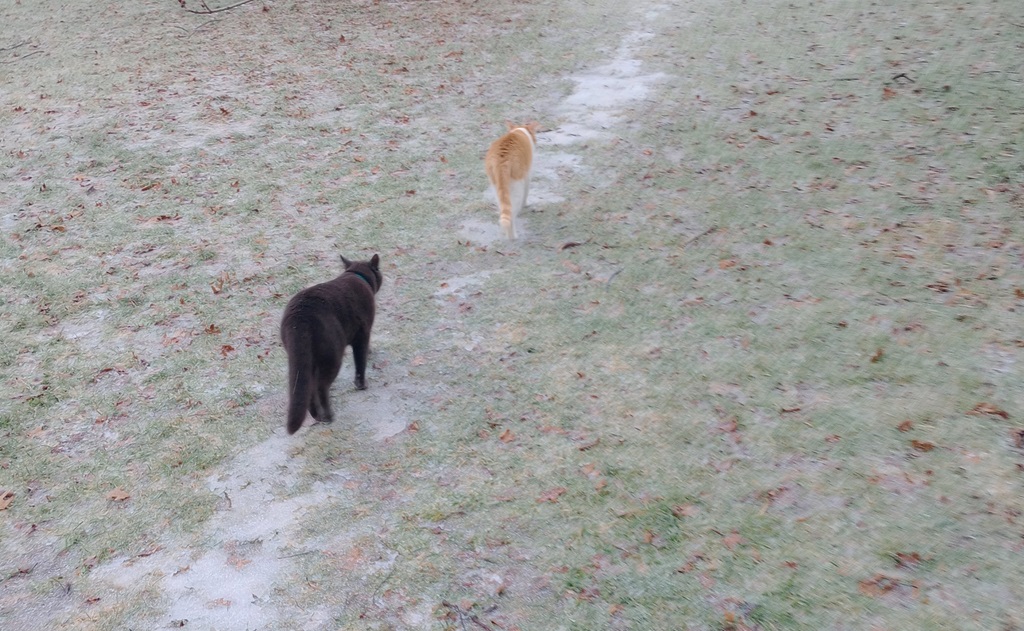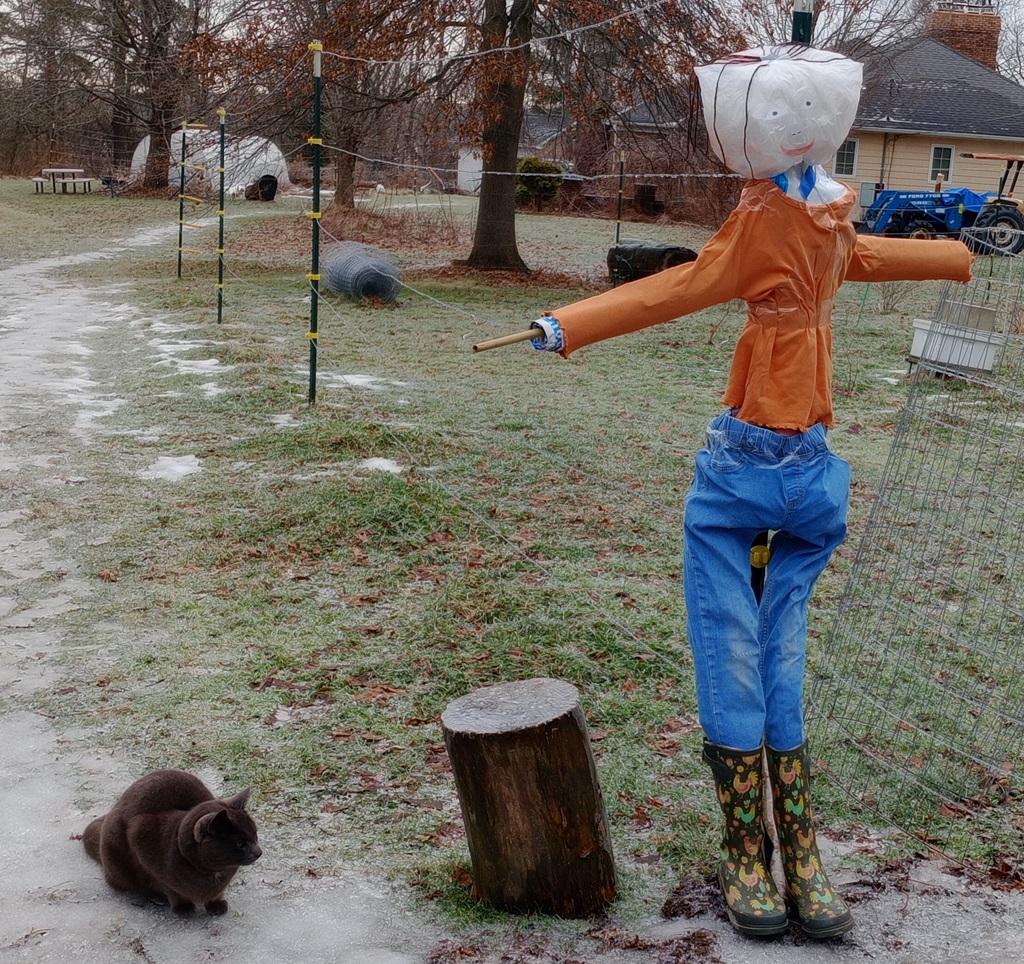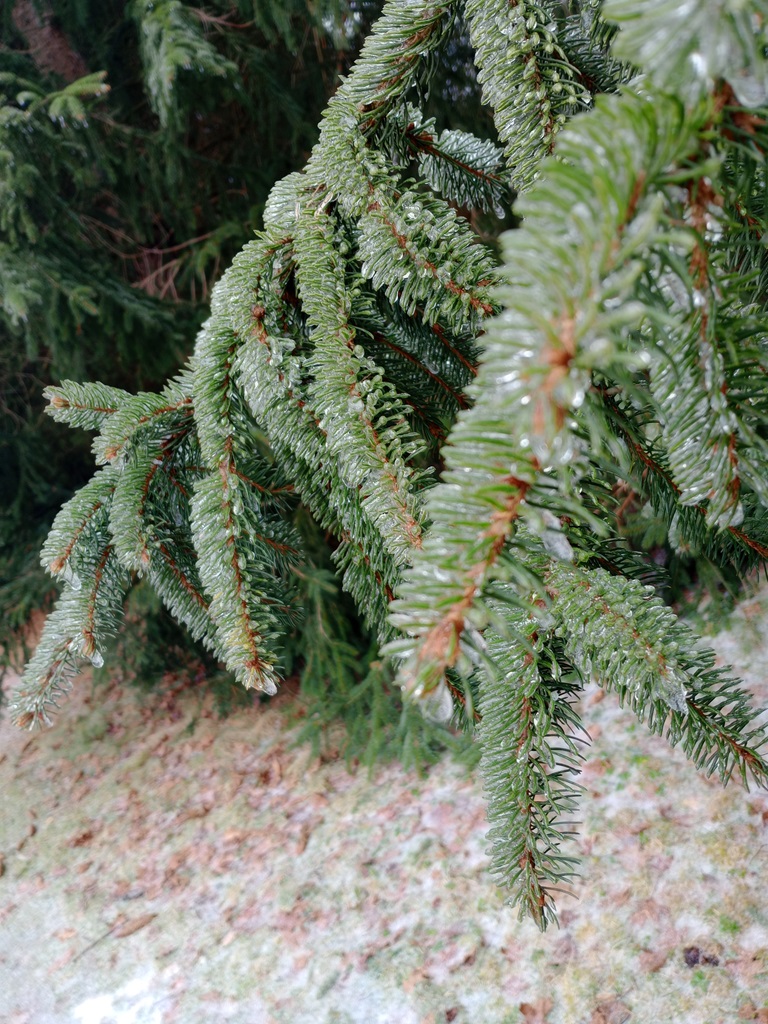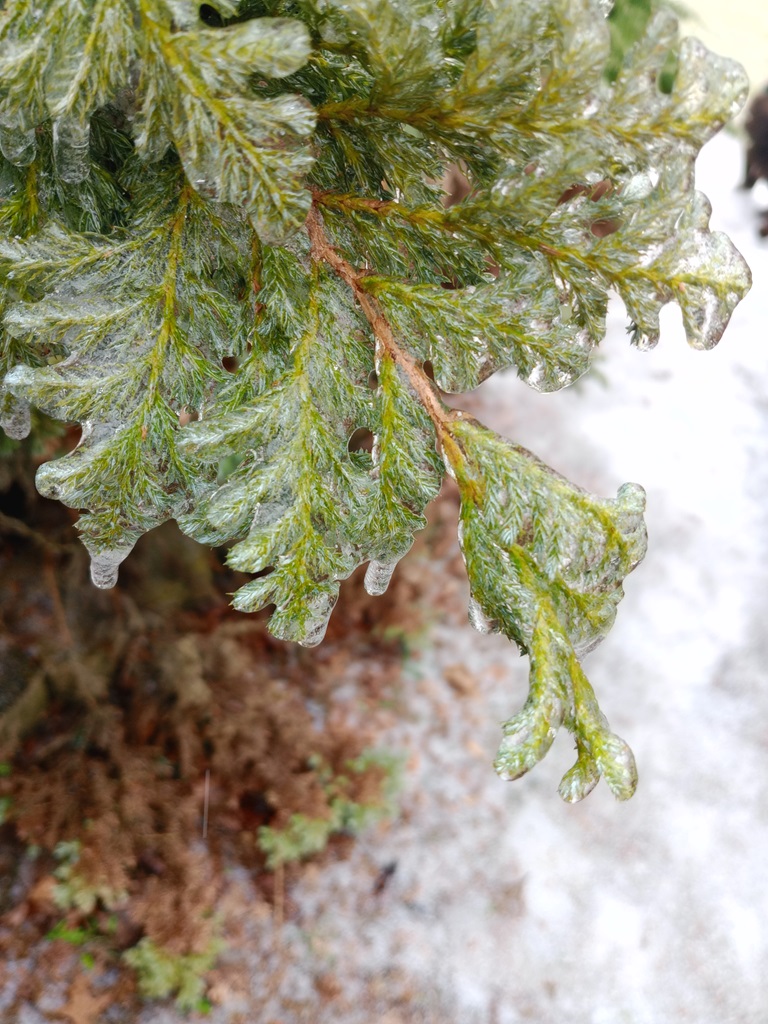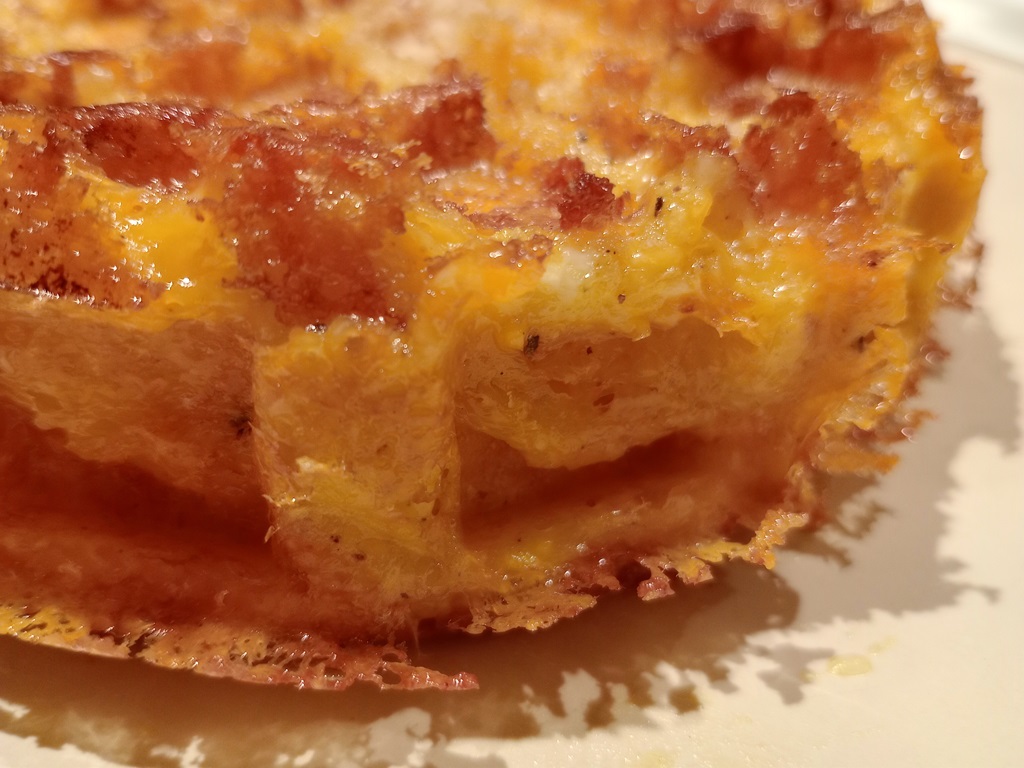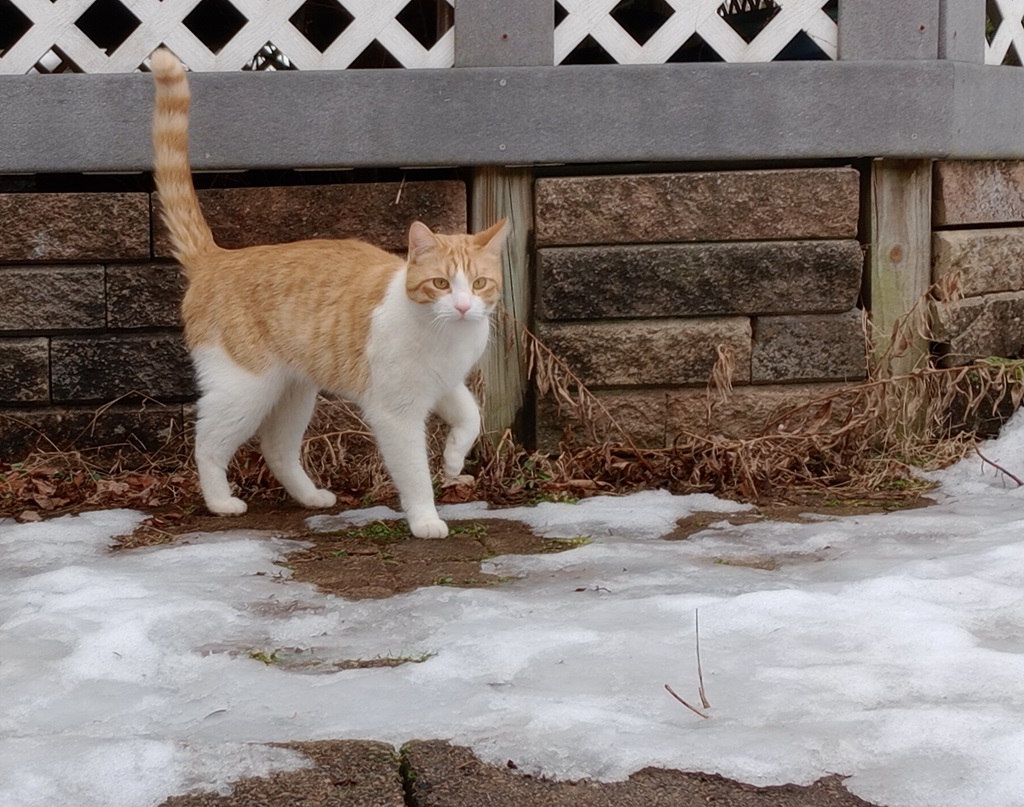I am trying a new approach to making stuffler sandwiches – pre-forming a circle so there’s more stuffing and less dough. Still getting a lot of dough, though, where they overlap. I think I will try sealing and trimming the edges next time. But there was a lot more stuff even with the folded edges.
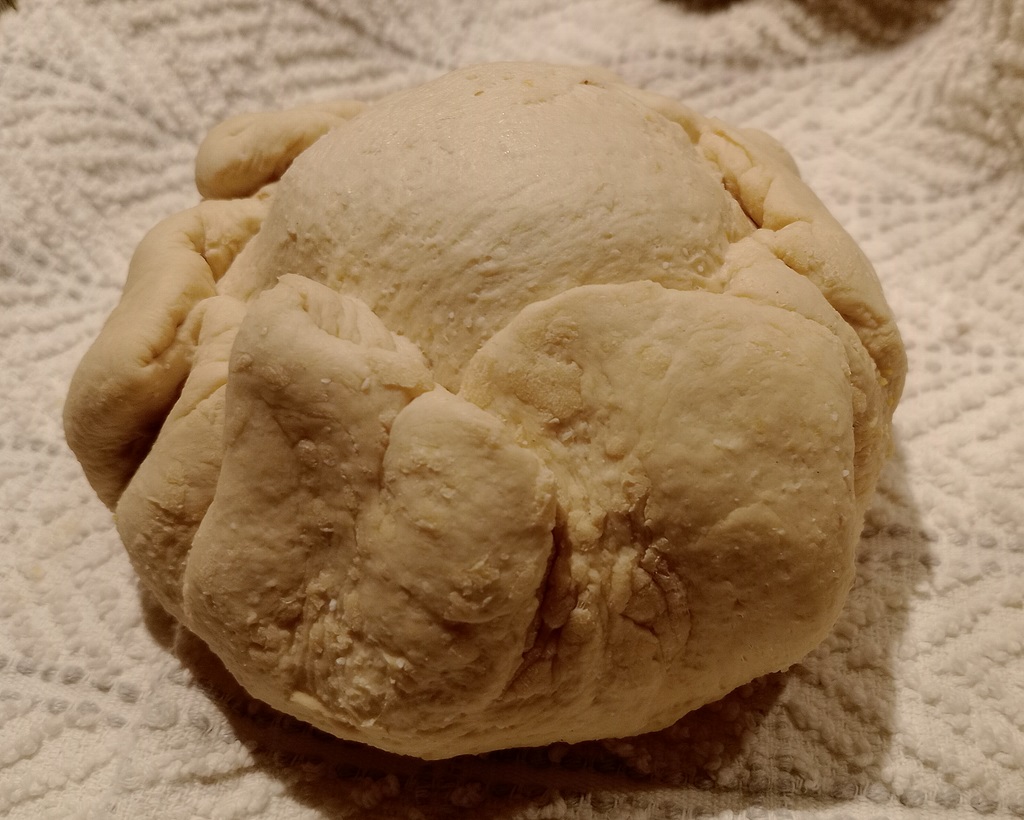
Snuggle
Daily Kitten Parade
Hawks and Eagles
I’m not sure if it is because the winter has been particularly cold or the local lake is drained and the ecosystem is disrupted … but we’ve never had a problem with hawks and eagles until this year. For most of the year, the buzzards keep them away. But this month! We lost a duck to a hawk — I came around the corner and saw the thing eating a duck. A week or so later, two ducks were missing and big feathery spots were in the duck yard. We put a small radio tuned to a talk station out in the duck yard — which seems to have helped there, but we lost two chickens today. I think a rooster tried to rescue the hen and was taken out. So Anya spent the day making scarecrows for both the duck and chicken yard. I mounted old CDs around the fence.
Even more ice
Sick Kitten!
Our younger cat growled at me when I picked him up this morning. When I put him down — he’s a bit of a growler — he had a bit of a limp. We kept him indoors and, as the day went on, his left hind leg got swollen. Scott took him into a local vet, and he had an infected bite! He’s got pain killers for a few days, and he got dosed up with antibiotics. I moved the cat bed into our family room so we could keep an eye on him as he sleeps and recovers.
Ice storm!
Stuffler Pizza
Scott saw this “Stuffler” in a video and got one to try it out — very cool! We made fruit stuff waffles with sweet cherries, strawberry stuffed chocolate brownies (difficult to clean up, but if you let it cool in the stuffler prior to removing it, they come right out), chaffles, and now pizza. You plug the thing in for about ten minutes to heat it up. The middle ring/handle needs to be inserted and the unit closed while it heats.
First, stretch out a round of dough and place it on the bottom waffle iron section. I tried to stretch the dough up the side of the ring like a pie crust. Took a little work, but managed eventually.
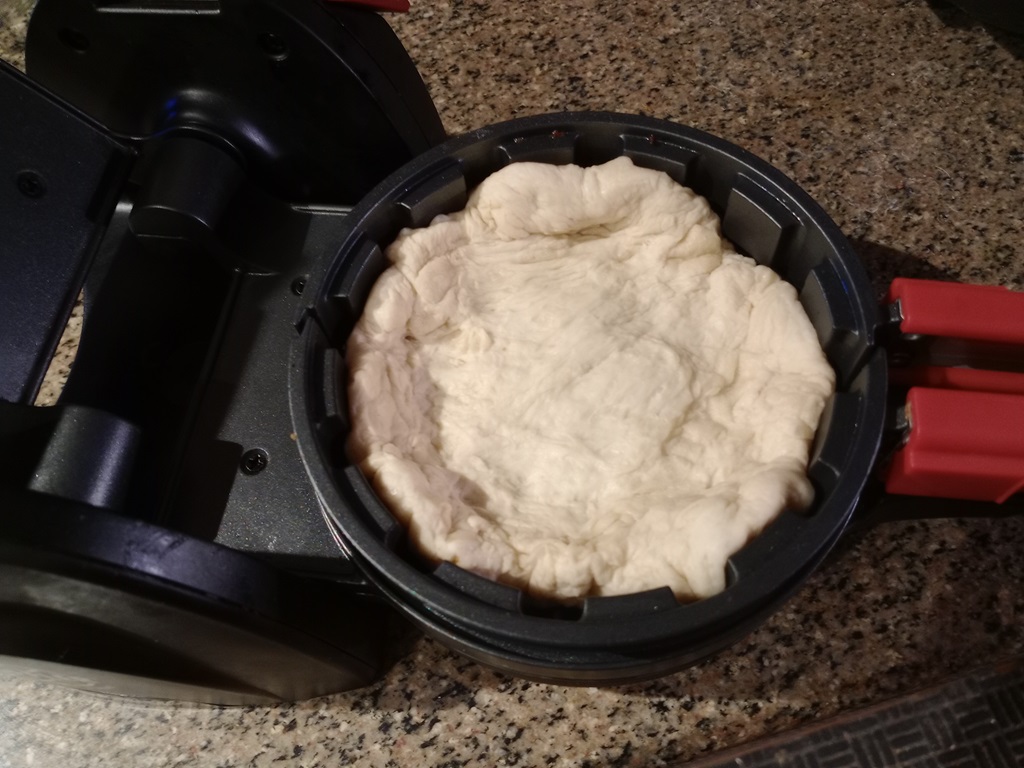
Spread on the pizza sauce and add whatever “toppings” — in this case, some cooked spicy Italian sausage and onions.
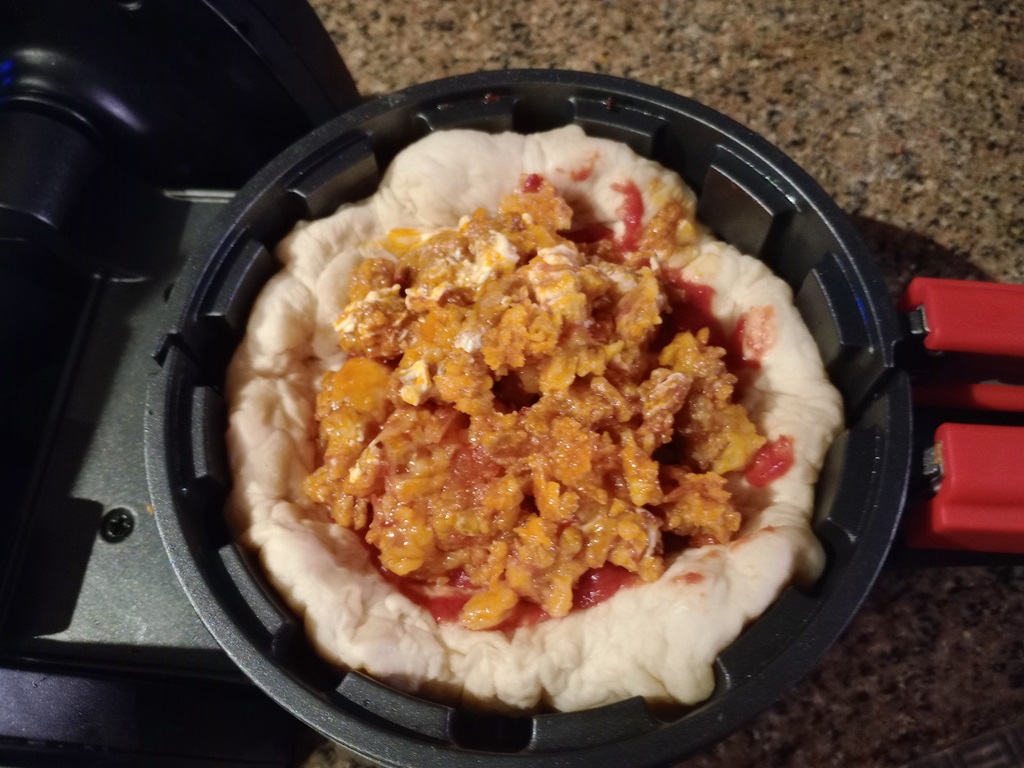
Add cheese!
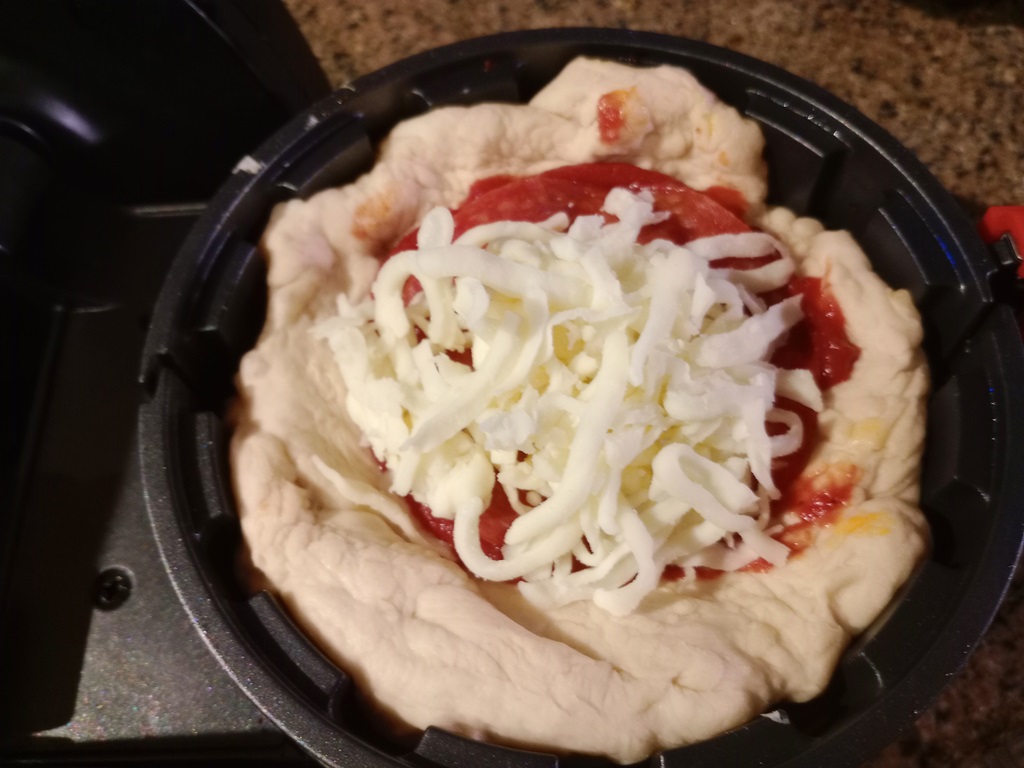
Then stretch out another disk of dough and put it on top. I pressed the edge together to try and seal it all up.
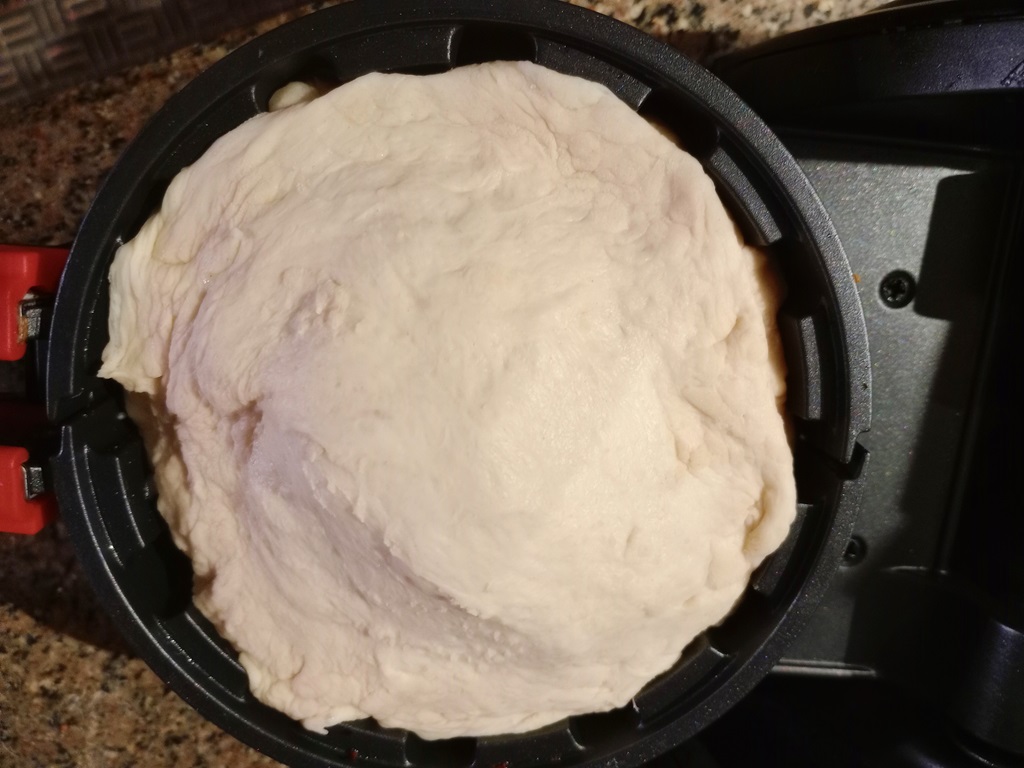
Then close it up & flip it. Allow it to cook. I cooked them for 10 minutes, flipped the unit again, and cooked them for another 5 minutes. They puffed up nicely and had a brown, crispy crust.
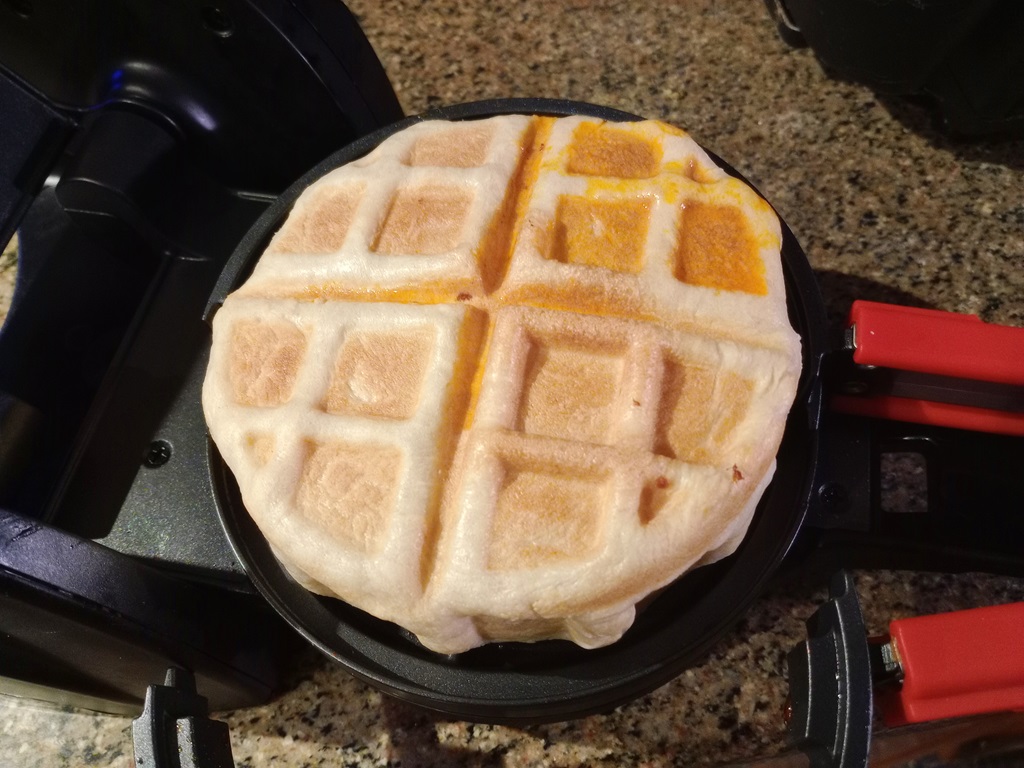
The sausage leaked some oil — I should have drained it better!

Cut the “stuffle” into four pieces and you’ve got gooey, cheesy pizza waffles! Pizza dough with four cups of flour made seven stuffed pizzas. I’ve got three in the freezer to see how well they reheat.

Chaffle
I’ve never heard of a “chaffle” before — it’s evidently a paleo / keto take on a waffle. 3 cups of shredded cheese (2 cups cheddar / 1 cup mozzarella) and about 3 eggs mixed together so the egg coats all of the cheese shreds well. Then put into a waffle iron. For extra crispy crunch, I sprinkled some panko onto the waffle plate, filled it with the “batter”, and sprinkled some more panko on top. Very crispy and crunchy!
Also very tasty! Like eating a grilled cheese sandwich, but the “bread” is really cheese too. I added a little salsa to the middle of the cheesy mixture before cooking it.

